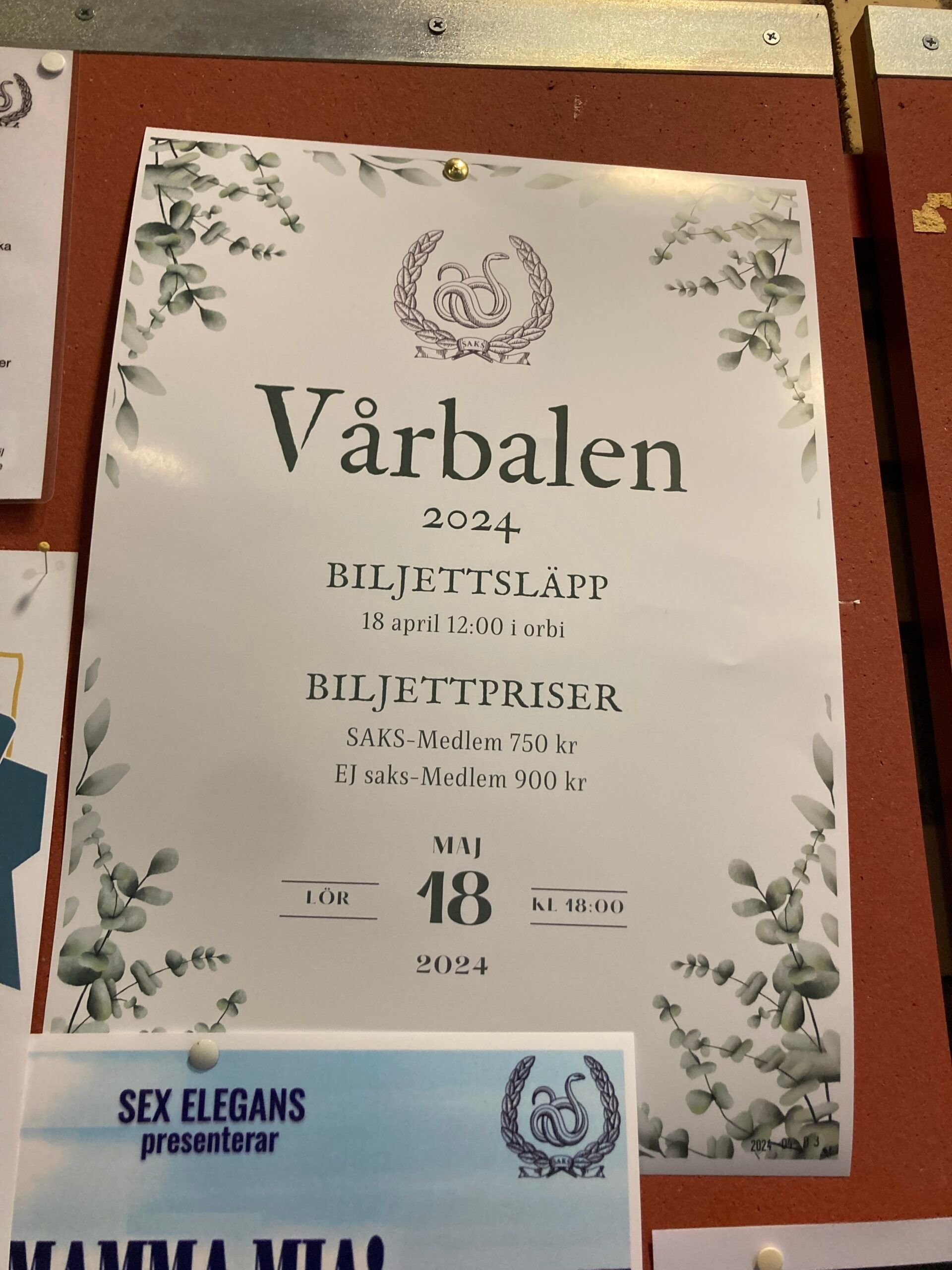
Written by Annamaria
14 Apr 2024
One of the biggest concerns students have when moving to study in Sweden is that life here is generally pretty expensive. That is why a part-time job is a must-have for some people. I am not saying it will cover all your costs but extra income to budget with is always nice. If you are one of these people hoping to get a part-time job in Sweden, this guide is for you!
Legal requirements and work permit
First things first… International students who come outside of the EU need a student visa (or other form of a valid residence permit) to both study and work part-time during their studies. EU students don’t need visas to work or study in Sweden. It will however be easier to find a job with a personal identity number or a coordination number (for those who are staying less than one year). It makes it easier to deal with the Swedish Tax Agency, known as ‘Skatteverket’.
Obtaining a work permit after your studies usually requires having a job offer from a Swedish employer.
My work experiences
Throughout my 3 years in Sweden (3 years, wow!), I had the opportunity to try a variety of jobs.
Tutoring – easy way to work part-time
I started with tutoring English to people online. I picked good online resources and found my students through a website similar to Italki in my country (Slovakia) where you can register as an English teacher. You could even offer to teach someone your mother tongue to make it more interesting.
Later I also tutored a few students in the Year 1 or 2 because I already passed those courses so I helped them better prepare for their exams.
The downside of this job is that you probably won’t get enough students to work for many hours so you generally wouldn’t earn much. (unless you are super successful)

Study in Sweden – digital ambassador
One of the best jobs to have as a student in Sweden is to be a digital ambassador for Study in Sweden. The hours are flexible and the job is online. You can be part of the blog team or the Instagram team. You can help other students come to study in Sweden and share your journey. Also, you get to meet wonderful people along the way. If you are interested, make sure to give it a try and apply when the next job opening opens, probably at the end of August 2024.
Internship in my field
If you’re lucky, you can get yourself an internship in your field. Keep in mind that these might be paid or unpaid. Some people find them on LinkedIn or the university website (in case it has a job board). I found mine in a very unique way that I recommend trying. I emailed several companies offering my skills. I wrote a nice email and attached my CV. Without previous work experience, I got almost no replies or just some declines. One company however replied. And one is enough.
They liked my interest in writing and background in biomedicine and so they offered me a health writing internship. The first month was unpaid and then we agreed on a salary. I have been working there part-time for more than a year and I did my bachelor’s thesis with them too!

Campervan rental
The easiest jobs to get as an international student in Sweden are those that do not require prior experience and Swedish language fluency. This can be jobs at hotels, restaurants, cafes, or tourist attractions. You could help out with cleaning, cooking, or event planning. These are, of course, easier to get when you have some Swedish skills, especially in smaller cities. It’s one of the many reasons why to learn Swedish even though people often speak English in Sweden.
Where to look for a part-time job or an internship?
There are several ways to look for a part-time job or an internship:
1. Arbetsförmedlingen – the Swedish Public Employment Agency
This is a government agency responsible for connecting job seekers with employers. They have a database of job vacancies across various industries. They also offer career guidance in case you need it. Many of the jobs require some proficiency in Swedish.
2. LinkedIn
Making a LinkedIn account is one of the best things you can do in Sweden. This platform allows you to connect with professionals and potential employers. Job openings are posted on LinkedIn all the time. You can showcase your experiences and skills and expand your network. Through your network you might be able to find a job by writing on your feed that you are open to job offers and what kind of job you are looking for.
3. University website and notice boards
Some universities (not all) have a page for jobs. Make sure to keep track of it when you’re looking for a student job. Similarly, you may find job offers on the notice boards around the campus. I love this ‘retro’ way of finding a job. You may also stumble upon some other announcement that could catch your interest like me and the Spring ball.

4. Through networking
The best way to find a job is through networking whether it’s via LinkedIn, at career fairs, or via email. Join events, webinars, and other things that interest you, and don’t be afraid to ask people about a job opportunity. Even an unpaid offer may eventually lead to a good and stable job.
Need help with writing a CV? Check out Nana’s post with the secrets of a good CV.
Benefits of having a part-time job
One of the greatest benefits of having a part-time job in Sweden is, of course, a stable income. The salary in Sweden is quite good – the average salary for a student ranges from 120 SEK to 150 SEK before tax per hour but depending on what you do, you could even get more (especially if you do an internship in your study field). Larger cities like Stockholm, Malmö, or Gothenburg also offer higher salaries in some cases. But besides money, there are also other benefits to working in Sweden:
Building connections
You can network with colleagues or customers who come from various cultures and industries and learn about the world. It’s also a great way to make friends in Sweden. Your team may become your little family.

Cultural integration
Swedish culture is super interesting both at the workplace and outside. Besides learning the language, you may experience the work-life balance firsthand, celebrate Swedish holidays, enjoy a nice ‘fika’, or simply learn to understand Swedish social norms and unique quirks. I learn something from my Swedish bosses all the time, especially thanks to the flat hierarchy so typical for Sweden.
Read on if you’d like to learn more about monthly costs in Sweden to determine if a part-time job could help you cover the living costs. Let me know in the comments how was your experience of finding a part-time job in Sweden.




